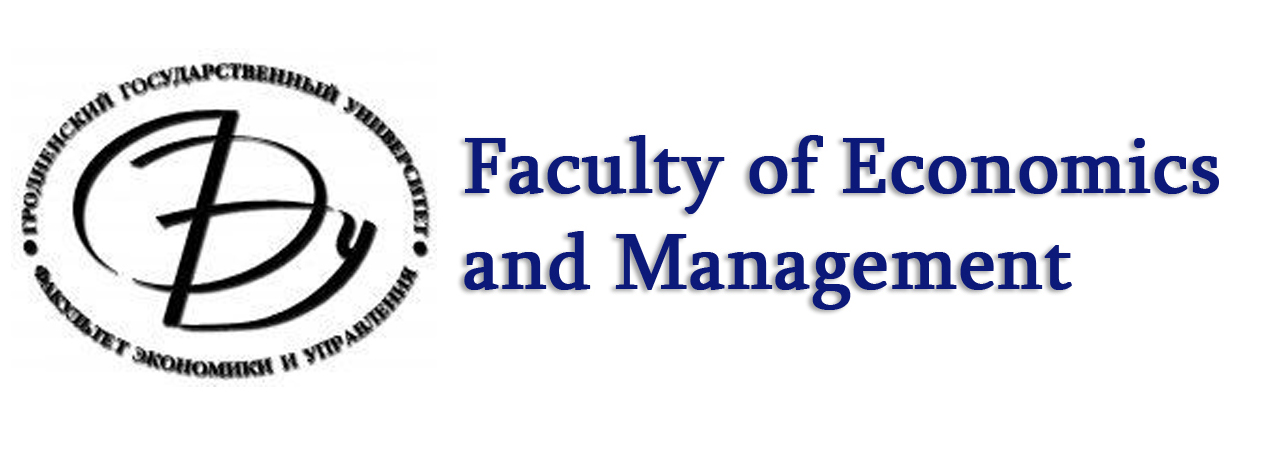|
Faculty |
||
|
Specialty |
1-31 80 09 Applied Mathematics and Informatics | |
| Profilisation | Computer Data Analysis | |
| Language of study | English / Russian | |
| Mode of study | Full-time | |
| Term of study | 1 year 8 months | |
| Entrance exams for foreign citizens | ||
|
Curriculum (with an indication of the main disciplines studied) |
Names of master’s degree students’ activities, cycles of disciplines, disciplines | Number of credits |
|
|
Study of the theoretical foundations of mathematical modeling and optimization, principles and practical methods for constructing and analyzing models of complex processes, phenomena and systems. Solving optimization problems in various fields of science, technology and economics. Formation of practical skills in applying mathematical modeling and optimization methods to solve problems of modeling and optimizing complex systems using modern software |
3 |
Study of mathematical models and methods of statistical analysis of multidimensional structure data. Formation of practical skills for solving applied problems of multidimensional data analysis using modern software in the field of statistical analysis |
3 | |
Obtaining theoretical knowledge and practical skills on methodological foundations and methods of making forecasts based on mathematical models. Building predictive models. Mastering the methods of constructing econometric models based on spatial data and time series, building econometric models based on economic and statistical data. Mastering computer software packages for economic and statistical data analysis and forecasting |
6 | |
Creating a database for using modern libraries in various programming languages. The ability to adapt existing algorithms and data structures for specific application tasks. Development of the ability to evaluate the complexity of operations with data structures, perform worst-case estimation and amortized estimation of operations, use probabilistic estimation of the complexity of operations. Learning about special data structures. Study of methods of organizing efficient search, optimization of this method, using various data structures. |
6 | |
Study of modern computer systems for statistical data processing. |
3 | |
Mastering the syntax of the Python programming language and acquiring practical programming skills in Python |
3 | |
Acquisition of practical skills in using mathematics to solve data analysis problems using the Python programming language |
3 | |
Study of various models of neural networks, methods and algorithms of their training for solving practical problems with the use of ready-made libraries of the Python programming language |
3 | |
Study of methods for solving applied problems of data analysis using Pandas module of the Python programming language |
3 | |
Construction of econometric models based on panel data, methods of conducting econometric analysis, consisting in the diagnosis of models. Methods for developing forecasts based on econometric models. |
3 | |
Mastering and obtaining practical skills in algoritmization and programming methods of computational mathematics and numerical optimization methods. Using modern computer modeling software in solving problems from various fields of human activity |
3 | |
Development, solution and analysis of logistics problems based on economic and mathematical methods and models and computer technologies: construction of economic and mathematical models during logistics research. Identification of the most significant quantitative relationships of the modeled logistics objects. Mastering the techniques of mathematical formulation of individual connections and phenomena of logistics systems. Acquisition of theoretical knowledge of basic economic and mathematical models and methods of transport logistics and inventory management |
3 | |
Construction and application of optimization models and methods of applied statistics for the analysis of statistical data in various spheres of socio-economic development of the region on the basis of modern computer technologies. Using modern information technologies to solve the problems of state regulation, forecasting and planning of state revenues and expenditures. Evaluation of results, including financial and economic analysis of economic processes and production activities. Using scientific achievements and development of proposals for improving professional activities in the field of finance, money circulation and credit. Development of practical recommendations for the use of scientific research in the field of finance, money circulation and credit, planning and conducting experimental research |
3 | |
Introduction to the basic concepts and types of patterns identified by data mining, study of IAD methods, training in the use of software tools based on data mining technology for solving practical problems |
6 | |
Study of the main approaches and methods of graphical representation and data analysis. Formation of practical skills and skills of working with tools for data visualization, including business intelligence systems. |
6 | |
Mastering the statements and features of discrete programming problems. Study modern methods for solving discrete programming problems. Developing skills in using software products for implementing discrete programming algorithm. |
3 | |
Mastering methods, techniques, procedures, models and software tools for analyzing decisions in conditions of multivariance, multicriteria, uncertainty and risk, acquiring modeling skills for decision-making tasks in conditions of incomplete information |
6 | |
Systematic study of the R programming language. Study of methods for solving the main applied problems of statistical data analysis by R language (data types in R, methods for creating loops, checking conditions, rules for writing functions, handling exceptional situations, writing and reading data from files and databases, working with graphs, exporting reports to pdf-file, etc., finding descriptive statistics). |
3 | |
Study of time series analysis methods based on higher-order statistics with implementation in the Mathematica package |
3 | |
|
The main competencies that the graduate will acquire |
|
|
|
Options to continue education (postgraduate specialties) |
• 08.00.13 – Mathematical and Instrumental Methods of Economics | |
| Graduate certificate | MASTER’S DEGREE DIPLOMA | |








































